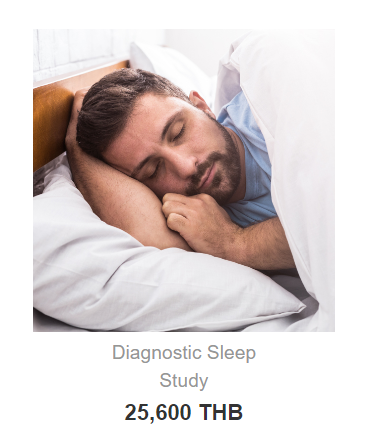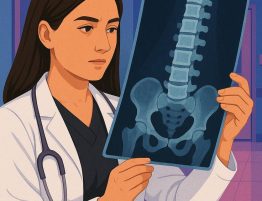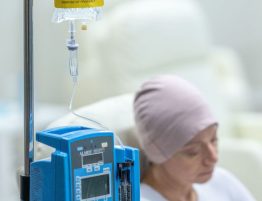
In today’s fast-paced world, quality sleep often feels like a luxury rather than a necessity. Yet, it is fundamentally essential for our overall health and daily functioning. Many people struggle with sleep disorders without even realizing it, leading to a cascade of negative effects on their physical and mental health. This is where diagnostic sleep testing comes into play—a crucial step towards understanding and improving your sleep patterns. At Almurshidi Medical Tourism, we are committed to helping you achieve the restorative sleep you deserve through cutting-edge diagnostic sleep testing.
# What is Diagnostic Sleep Testing?
Diagnostic sleep testing is a specialized medical assessment designed to evaluate the quality and patterns of your sleep. This process involves monitoring various physiological functions during sleep to identify disorders such as sleep apnea, insomnia, restless legs syndrome, and narcolepsy. By analyzing data collected through these tests, healthcare professionals can provide accurate diagnoses and develop tailored treatment plans to address your specific needs.
# Why is Diagnostic Sleep Testing Important?
Sleep is integral to our health, impacting everything from cognitive function and mood regulation to cardiovascular health and immune system performance. Unfortunately, many sleep disorders are underdiagnosed, leaving individuals to suffer from chronic fatigue, irritability, and other health issues. Diagnostic sleep testing helps bridge this gap by offering a thorough assessment that reveals underlying problems.
1. Identifies Hidden Disorders: Sleep disorders like obstructive sleep apnea (OSA) can significantly disrupt sleep without the sufferer being fully aware of it. Diagnostic testing uncovers these hidden conditions, providing clarity and opening the door to effective treatments.
2. Enhances Treatment Accuracy: A precise diagnosis allows for a more targeted approach to treatment. Rather than relying on guesswork or generalized treatments, diagnostic sleep testing provides specific insights that guide healthcare providers in crafting personalized treatment plans.
3. Improves Quality of Life: By addressing sleep disorders, you can experience improved mood, increased energy levels, and better overall health. Effective management of sleep disorders also reduces the risk of complications such as high blood pressure, diabetes, and heart disease.
# Types of Diagnostic Sleep Tests.
There are several types of diagnostic sleep tests, each designed to assess different aspects of your sleep health. Here are the most common ones:
1. Polysomnography (PSG): This comprehensive overnight sleep study is considered the gold standard in sleep testing. It records brain waves, eye movements, heart rate, respiratory effort, and oxygen levels to provide a detailed picture of your sleep architecture and detect any abnormalities.
2. Home Sleep Apnea Testing (HSAT): For those who may not require an in-lab study, a home sleep apnea test can be a convenient option. It involves using a portable device to monitor key parameters such as airflow, oxygen levels, and heart rate while you sleep in the comfort of your own home.
3. Actigraphy: This method involves wearing a wristband-like device that tracks your movement patterns over several days or weeks. It provides valuable information about your sleep-wake cycles and helps in diagnosing conditions like insomnia or circadian rhythm disorders.
4. Multiple Sleep Latency Test (MSLT): This test measures how quickly you fall asleep in a quiet environment during the day. It is typically used to diagnose narcolepsy and other disorders that cause excessive daytime sleepiness.
# Preparing for a Diagnostic Sleep Test.
Preparing for a sleep study is generally straightforward, though there are a few key steps to ensure accurate results:
1. Consult with a Specialist: Begin by consulting with a sleep specialist who can determine the appropriate type of test based on your symptoms and medical history.
2. Follow Instructions: Whether you’re undergoing an in-lab study or a home test, follow the provided instructions carefully. For in-lab studies, this might include avoiding caffeine and alcohol before the test. For home tests, ensure you understand how to use the equipment correctly.
3. Provide Relevant Information: Share details about your sleep habits, medical history, and any medications you are taking. This information helps the healthcare provider interpret your test results more accurately.
# The Next Steps After Your Test.
Once your diagnostic sleep test is complete, your healthcare provider will analyze the results and discuss the findings with you. Depending on the diagnosis, treatment options may include lifestyle changes, medication, or the use of devices like continuous positive airway pressure (CPAP) machines. Regular follow-ups and adherence to the prescribed treatment plan are crucial for achieving the best outcomes.
At [Your Company Name], we are dedicated to helping you uncover the root causes of your sleep issues and guiding you towards effective solutions. Our state-of-the-art diagnostic sleep testing services are designed to provide you with the insights needed to improve your sleep and enhance your overall quality of life.
**Don’t let sleep disorders dictate your well-being. Schedule your diagnostic sleep test today and take the first step towards a healthier, more restful future.**
#Almurshidimedicaltourism
UAE +971503318787 Whatsapp http://wa.me/971503318787
Oman +96891271744 Whatsapp http://wa.me/96891271744
Thailand +66822004040 Whatsapp http://wa.me/66822004040
website WWW.ALMURSHIDIMED.COM
Social Media ALMURSHIDIMED








